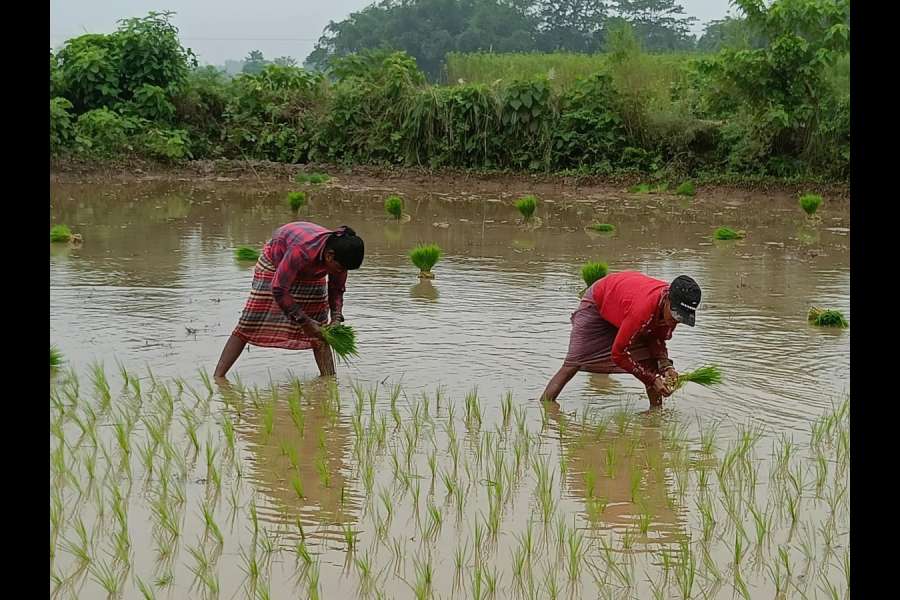The Mamata Banerjee government increased the purchase limit of paddy from farmers after it could reach only about 58 per cent of its annual procurement target of 70 lakh tonnes.
A deficit can have a serious dent on its cheap grain scheme — Khadyasathi — during the Lok Sabha polls.
Earlier, a farmer used to sell 30 quintals of paddy to the government annually. In its announcement in the first week of April, the state government has let farmers sell another 30 quintals of paddy for the Boro (winter) season, for which harvesting will soon start in Bengal.
The fresh move to buy more paddy from a farmer was initiated to reach the state’s annual procurement target and keep the state’s cheap grain scheme running during the poll season, sources said.
Moreover, this would help the state to reach out to the farmers of Boro producing districts like Hooghly, East Burdwan, Murshidabad and Nadia with minimum support price for their produce. This is important from the perspective of the Trinamool Congress as farmers here hold the key to electoral success.
“The department also needs to procure 30 lakh MT of paddy in the remaining
2-3 months to meet its requirement for PDS (public distribution system)… The Department has now decided in the public interest to allow the validated farmers, i.e. farmers having KB (Krishak Bandhu) ID, to sell 30 quintal of paddy in the coming Boro season in 2023-24…,” reads an order issued by the food and supplies department.
The cheap grain scheme is one of the signature welfare schemes that started soon after Trinamool came to power in 2011.
Sources in the food and supplies department said that the move to allow farmers to sell more paddy to the government during the Boro season was a smart move as most farmers were not interested in selling their produce to the government.
“Initially, a target was set to register 25 lakh farmers in the procurement portal.... But only about 17 lakh farmers could be registered for lack of farmer interest. Now, if the state wants to achieve its target, it has to increase procurement limit from a farmer,” said a source.
In the Kharif season, farmers apparently did not come forward to sell their produce to the government as the cash-strapped state government could offer a bonus of only Rs 20 for a quintal over and above the Centre’s rate of Rs 2,183 a quintal. The minimum support price (MSP) was Rs 2,203 in Bengal, closer to the market rate of over Rs 2,100 a quintal this year.
Farmers preferred a loss of Rs 100 a quintal to taking their produce to government procurement centres, which are often 30-40 km away
from their villages, and spending an entire day on the process to finally get money in their bank accounts.
A section of the officials aware of the development felt achieving the procurement target now is easier said as the state government has kept the same bonus for farmers in the Boro season.
“The local traders buy paddy from farmer homes and place cash in their hands.... Until the state announces a heavy bonus like Rs 907 a quintal in Chhattisgarh, it would be tough for the government to persuade the farmers to sell their produce to it,” said a source.
In the Boro season, bonus apart, the input cost is higher than in the Kharif season for farmers as the winter crop is completely dependent on irrigation.
“So, farmers need a better offer from the state.... But the cash-strapped Bengal
government can’t give more bonus to the farmers. Furthermore, announcing a higher bonus would violate the model code of conduct,” said a source.
However, the paddy market price is a bit low right now. “Now, a farmer will get Rs 1,900 to Rs 2,000 a quintal in the market that is flush with Kharif produce. If the government offers Rs 2,203 a quintal, some farmers may consider it,” the source added.











